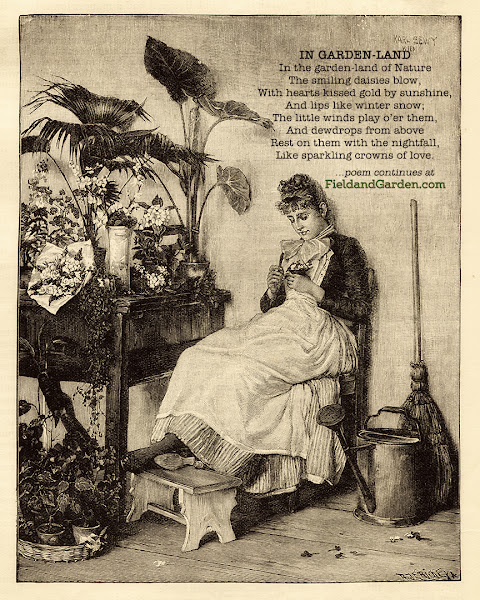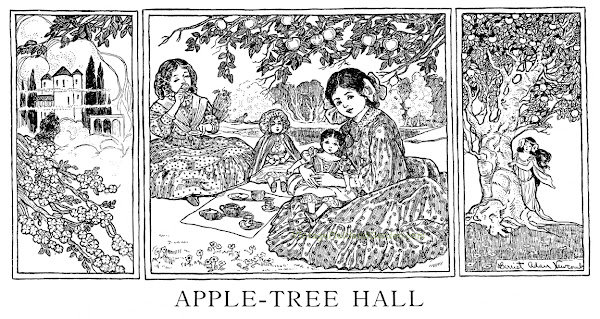A Victorian poem entitled "The Dial of a Summer's Day" by C.E.C. Weigall, originally published c1890. Accompanying the poem is an illustration of a small farmhouse surrounded by a lush meadow at the height of summer. The poem goes as follows:
Just one o'clock:
In the meadow of hay,
The reapers are reaping and singing today,
Ant the swish of the scythe rings a glad roundelay.
Just two o'clock:
Hush! you babbling rill,
The world lies a-drowsing, the reapers are still,
And a shimmer of heat dances over the hill.
Just three o'clock:
Said the hare by the stile,
"The reapers are crafty -- the reapers of Lisle."
So he crept 'neath a dock-leaf and pondered awhile.
Just four o'clock:
In the wild rose and clover
The honey bee laughs, and dips over and over,
And "peewit, 'tis hot!" pipes the petulant plover.
Just five o'clock:
Twixt the moor and the sky,
Where the far distant purple of heather doth lie,
The arrowing curlews still hover and cry.
Just six o'clock:
From the ivied church tower,
The breeze carries upward in the chime of the hour,
Which the great bell is tolling with ponderous power.
Just seven o'clock:
Drones the humble bee red,
As he watches a cockchafer whizz over head,
And fussily follows a neighbour to bed.
Just eight o'clock:
As I watch and I wait
In the gathering twilight, beside the farm gate,
I know that the flowers say, "Mabel is late!"
Just nine o'clock:
As we wander and pass,
Hand in hand, lip to lip, over dew-spangled grass,
We can hear the white owl shrieking, "Lovers, alas!"
Just ten o'clock:
As we part 'neath a star,
The angels are smiling through heaven's bright bar,
And the new moon is rocking the clouds in her car.
Just eleven o'clock:
In her window the light
Flares redly and instant, then fades out of sight,
And I turn with a sigh, and walk into the night.
Just twelve o'clock:
On the motionless deep
The lights of the fishing-boats tremulous peep,
And the angels have hushed the world's sorrows to sleep.
You can download the poem along with the black and white illustration as a high-res 12" x 12" @ 300 ppi JPEG
here. Lovely as a framed print but can also be used in a greeting card, junk journal or scrapbooking project.

Public domain poem is from my personal collection. All digitized poems by
FieldandGarden.com are licensed under a
Creative Commons Attribution 4.0 International License. Please credit and link back to FieldandGarden.com as your source if you use or share this work.



















